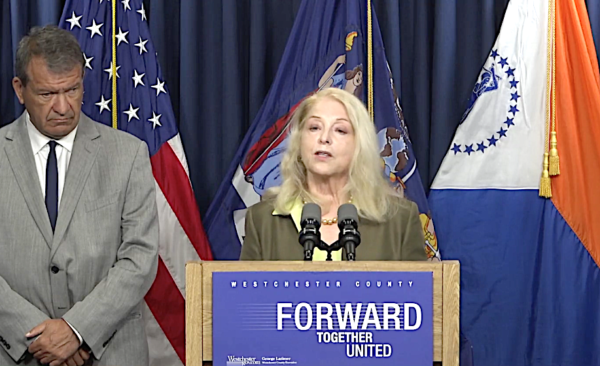Monkeypox a concern with local cases slowly increasing
The number of Monkeypox cases in the U.S. can be expected to continue growing according to the U.S. Centers for Disease Control and Prevention, although not nearly as rapidly as did Covid-19 early in its outbreak. Monkeypox spreads differently than does Covid, with direct contact with either an infected person or an object touched by an infected person usually being necessary for it to spread.
As of July 18, there were 16 cases of the disease reported in Westchester County, compared with 13 cases in all of Connecticut. There were 489 confirmed cases in New York state and 1,814 nationwide. The Connecticut patients live in Fairfield, New Haven and Hartford counties according to the state”™s Department of Public Health.
Connecticut has received a limited supply of the JYNNEOS Monkeypox vaccine from the federal government, as has New York.
“At the present time, our top priority is ensuring access to post-exposure prophylaxis and then expanding to a larger pool of at-risk persons when our vaccine supply allows us to do so,” said Connecticut”™s Commissioner of Health Dr. Manisha Juthani.

During a news conference in White Plains, Westchester County Executive George Latimer and Westchester County Commissioner of Health Dr. Sherlita Amler both emphasized that Monkeypox is different from Covid-19 in that it is not widely spread through the air and usually requires direct skin-to-skin contact or contact with an infected person”™s secretions to be transmitted. Alternatively, it can be transmitted through mutual contact with an object.
The U.N. World Health Organization (WHO) pointed out that the virus can be picked up from contact with an infected animal or from prolonged exposure to droplets from an infected human. WHO also said that Monkeypox symptoms usually last two to four weeks and can be severe. WHO said that from 3% to 6% of Monkeypox cases are fatal.
Amler said that people do not need to wear a mask to avoid being infected by Monkeypox.
“Monkeypox really spreads less easily than Covid and, in fact, it was discovered about 50 years ago and as you know we”™ve had almost no spread of Monkeypox in the last 50 years and in general the cases were mostly confirmed to the continent of Africa,” Amler said. “It”™s really a disease where its primary transmission is skin-to-skin.”
Amler said that although you can have a fever with Monkeypox, the symptoms include intense headache, swelling of the lymph nodes, muscle aches and an unusual rash that can blister and crust over.
Amler said that with Monkeypox, testing is done by running a swab across the skin rash, unlike Covid where a swab is used to take samples from nasal passages.
“With Monkeypox, the vaccine we”™re using here in New York is called JYNNEOS and it is FDA approved,” Amler said. “It is not approved for anyone less than 18 years of age. If you have an exposure to Monkeypox and you get the vaccine within four to 14 days after your exposure, you may potentially prevent the disease or if you have the disease the symptoms may be less severe.”
Amler emphasized that people do not need to be alarmed about Monkeypox but do need to understand what the disease is, how it is spread and what to do if they become exposed to it.
Latimer said that the county has received a limited supply of Monkeypox vaccine from the supply the federal government provided to New York state, with doses distributed to Westchester Medical Center, St. John”™s Riverside Hospital in Yonkers and Open Door Family Medical Center. He said that 50 doses were reserved for the Westchester County Department of Health. Latimer announced that the county would be scheduling appointments for vaccinations at the county”™s health clinic at 134 Court St. in White Plains.
“We want to try to, as best we can, address the need as it manifests itself,” Latimer said. “We know that when dealing with a health issue, things change.”